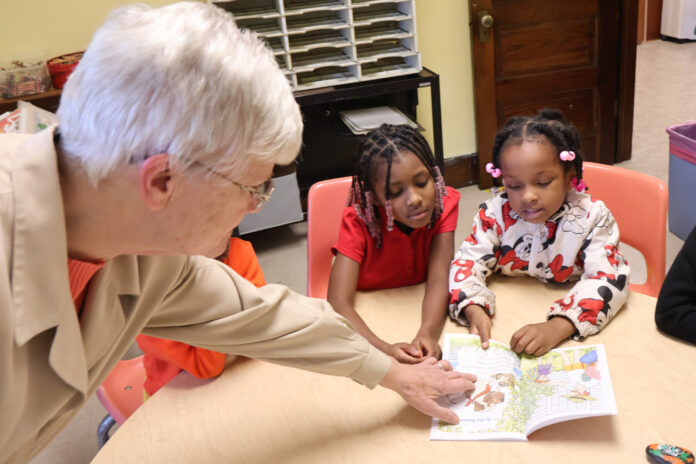
Empowering education in Toledo’s Junction neighborhood
Story and photos by Laurie Bertke
TOLEDO— Since its founding in 2006, the Padua Center has gone through several phases, and a few programs have come and gone. Two things that have remained consistent have been its focus on education and the steady leadership and guidance of its director, Sister Virginia Welsh.
The huge brick home that stands in the shadow of St. Anthony Church was originally built in 1906 to house Catholic priests who served the Polish immigrants of the Toledo neighborhood, then known as Kuhschwanz.
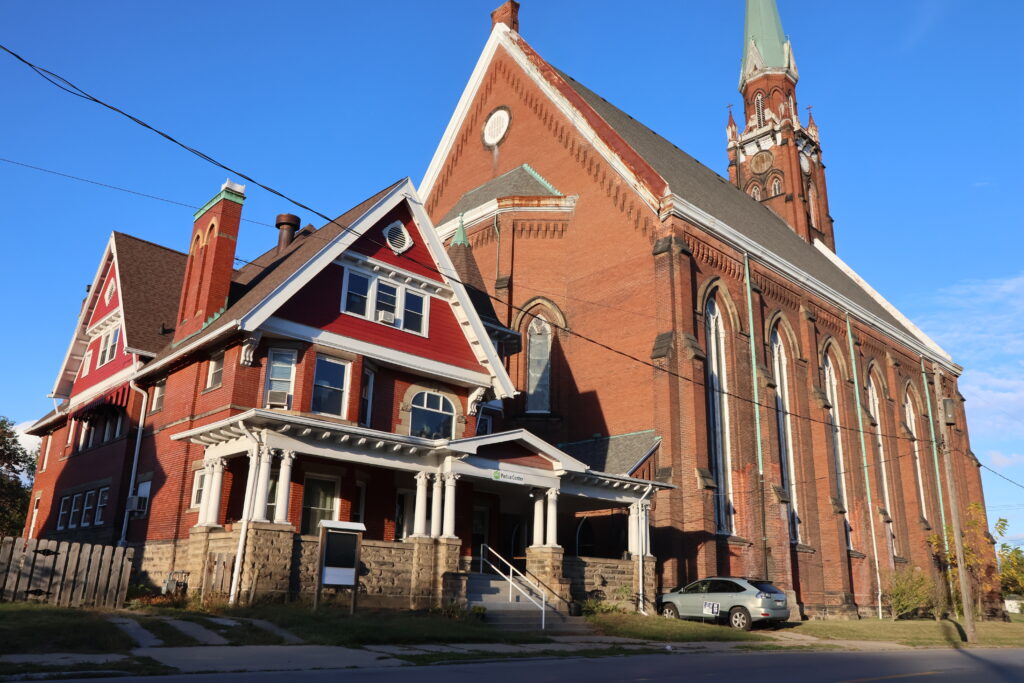
A century later, the Gothic-style church, with its iconic 250-foot steeple, was no longer operational, and Sister Virginia Welsh was tasked with developing a new mission for the old rectory on Nebraska Ave.
The Diocese of Toledo wanted to keep a Catholic presence in Toledo’s Junction neighborhood, but Welsh told representatives from the Diocese of Toledo that she was not interested in operating a social service agency that gave away food, clothes and money for bills.
“I was originally trained as an educator, and if we’re going to change it so people aren’t coming here every month looking for food and all that; we have to educate,” she recalls saying.
Thus, the Padua Center and one of its central programs were born. Welsh, a member of the Sisters of St. Francis of Tiffin, began planning for after-school programming in October 2006, and the center welcomed the first children the following January.
Today, 23 attending K-8 at nearby public, private and charter schools are enrolled in “Nia,” a free after-school tuturing program. Daily transportation to the center is included.
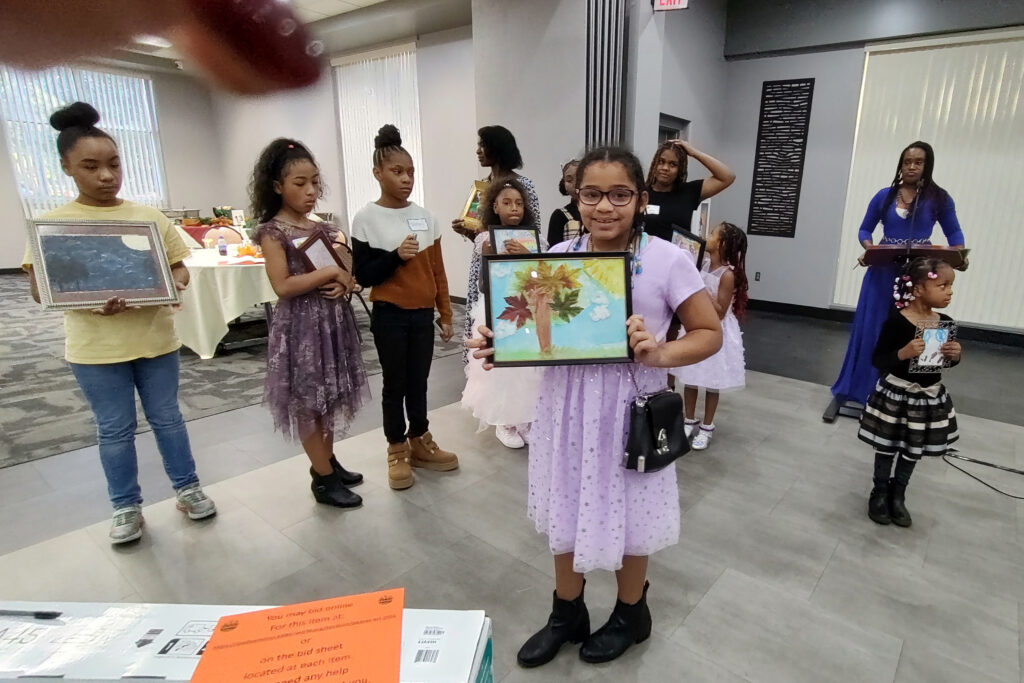
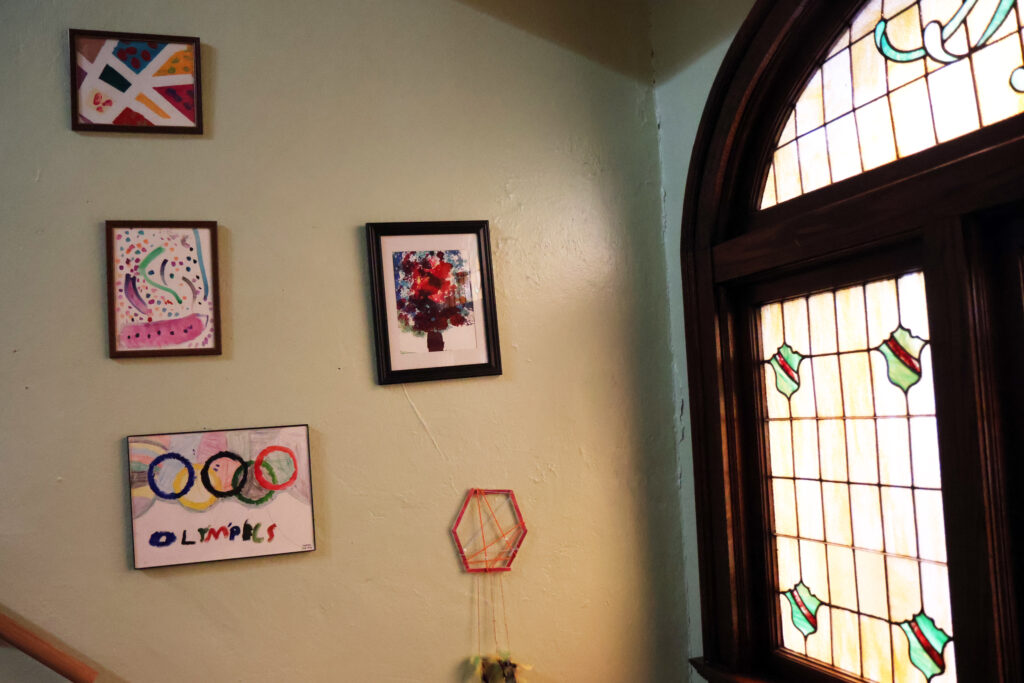
Many of those students attended the annual Peaces of Art Celebration held Oct. 6 at the Sullivan Center at Gesu Church, which serves as a primary fundraiser for the Padua Center. The youth greeted guests and witnessed a live auction of artwork they created for the event, which raised around $20,000. The center is entirely funding by grants and donations.
Community activist and former Toledo mayor Carty Finkbeiner was first introduced to the Padua Center at this event years ago. He later joined its board, and says one of the most important things the center does is to teach young people to respect themselves and others.
“It all starts with respecting yourself,” said Finkbeiner. “That’s what I think our program is teaching — one human being to respect another. Not to be afraid of another, but to be respectful and caring; and as long as you’re respectful and caring in this world, you’re going to get along and there’s going to be a place for you.”
Prioritizing youth and education
Padua Board president Dennis Jarrett notes that all of its youth programs are offered free of charge to participants. “We reach out to youth — that’s our number one priority — and families,” he said. “Everything we do is aimed at empowering people from the community to achieve maximum potential.”
On a recent Monday afternoon, the third floor of the center was filled with the voices of children. In one room, four kindergarteners gathered around a Henry and Mudge book, following the words along to an audio recording of the story. In another, volunteer Donna Kwik-LeFebvre assisted third-grader Indica Rudolph and fourth-grader Ices Nicholson with their homework.
For those students who finished their homework, it was Reading Day in another room. Tutoring director Teresa Allen plans different assignments daily to help the children practice core skills in subjects, such as math and language arts.
Most of the children come from economically disadvantaged families, and Welsh says they strive to expose the kids to a variety of new experiences. Free summer camps are offered in the summertime, and they include field trips to parks, museums and other cultural spots in the region.
Weather permitting, there is usually time to play outside and visit with the center’s flock of chickens. Toward the end of the afternoon, the children gather for a light supper provided by Connecting Kids to Meals, and by 5:30 p.m. parents arrive to take them home.
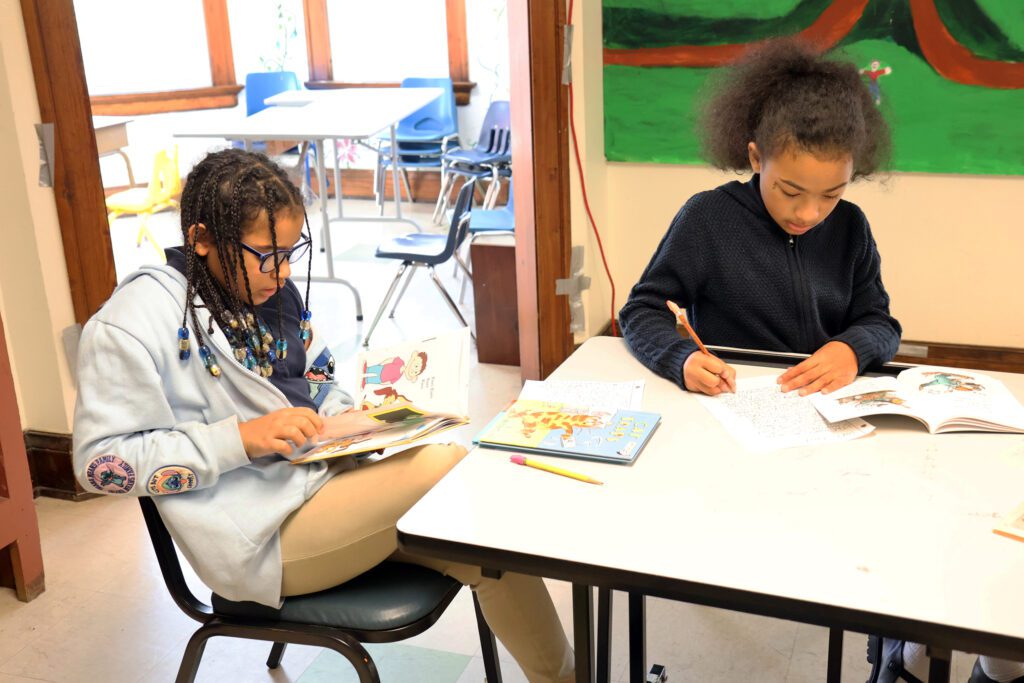
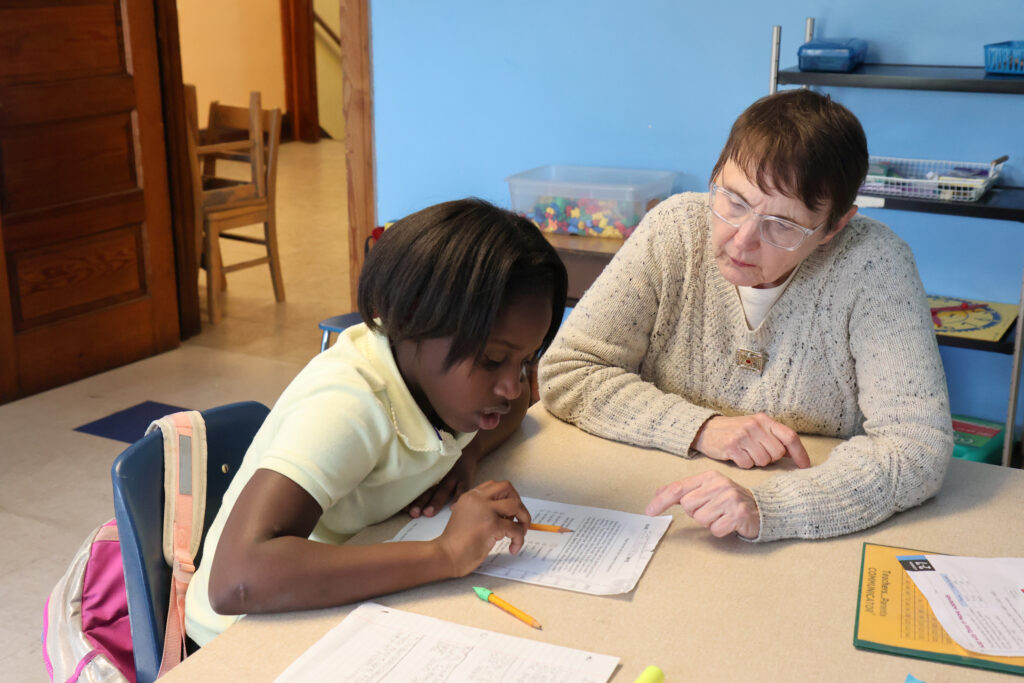
Fostering a sense of care for the environment in the children is another integral part of the center’s mission. Over the years, it has acquired enough adjacent vacant lots from the Lucas County Land Bank to create the Ujima Park and Garden at the corner of Junction and Nebraska. Crops produced in the garden beds and the hoop house are sold at the Toledo Farmer’s Market and used by neighbors. Gardening programs for the children are held in the summer.
Along with its youth programs, the center hosts meetings for a neighborhood concerns group, and provides office space for several other community organizations and charities.
Operating on faith
After starting out under the umbrella of the Diocese of Toledo, the Padua Center became affiliated with nearby St. Martin de Porres Parish in 2008. At one point, it was in danger of being demolished with the crumbling St. Anthony Church, but public outcry in 2018 saved both the church and the center from the wrecking ball. The Diocese of Toledo bequeathed both properties to the Lucas County Land Bank, which in turn deeded the rectory to the Padua Center.
Around this time, the Padua Center became an independent 501(c)(3) charitable organization.
Welsh — known by all as Sr. Ginny — has remained as the part-time director, while also serving as pastoral leader of St. Martin de Porres. A small, dedicated group of part-time employees and volunteers assist her in carrying out the Padua Center’s mission.
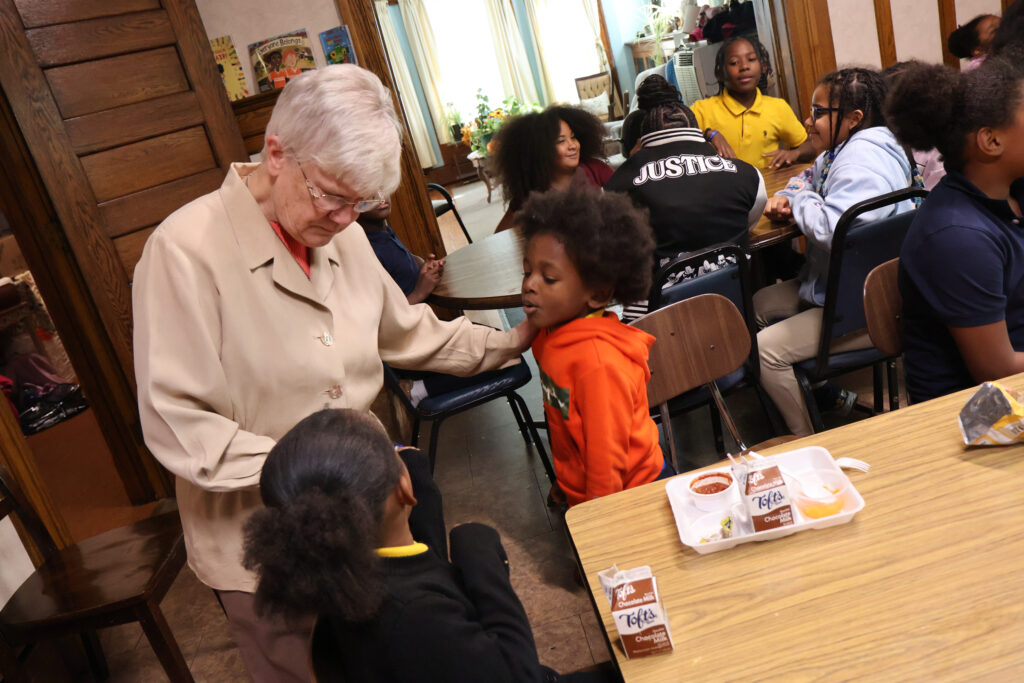
Maintaining a building that is more than 100 years old is no easy task. There is rarely money for anything extra. “It’s a tight budget. I write a lot of grants,” said Welsh. “The most important thing is the kids are getting a good experience.”
She recalls one time when she didn’t know how she was going to make the next payroll, then she came into her office after a board meeting to find a check for $25,000 on her desk. “You just have to operate on faith. You can’t worry about it,” she said.
Welsh is modest when asked about the impact the center has had over the years. In the interview, she keeps returning to discussing areas she would like to see developed further — more programs to connect children to the environment; more volunteers to help with education; more engagement with neighbors.
But she also tells a story about a day when she was working in the garden and someone suddenly approached her while she had her back turned.
“I turned and it was one of our little kids who had gone away, gone to the Army and gotten out of the Army,” Welsh recalled. “He came back and he saw me and he grabbed me and gave me a big hug. The kids do come back sometimes.”





